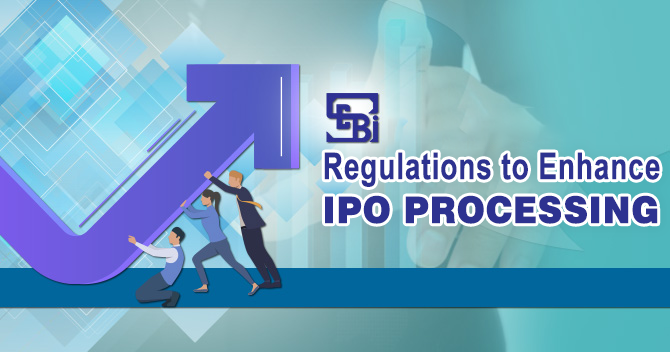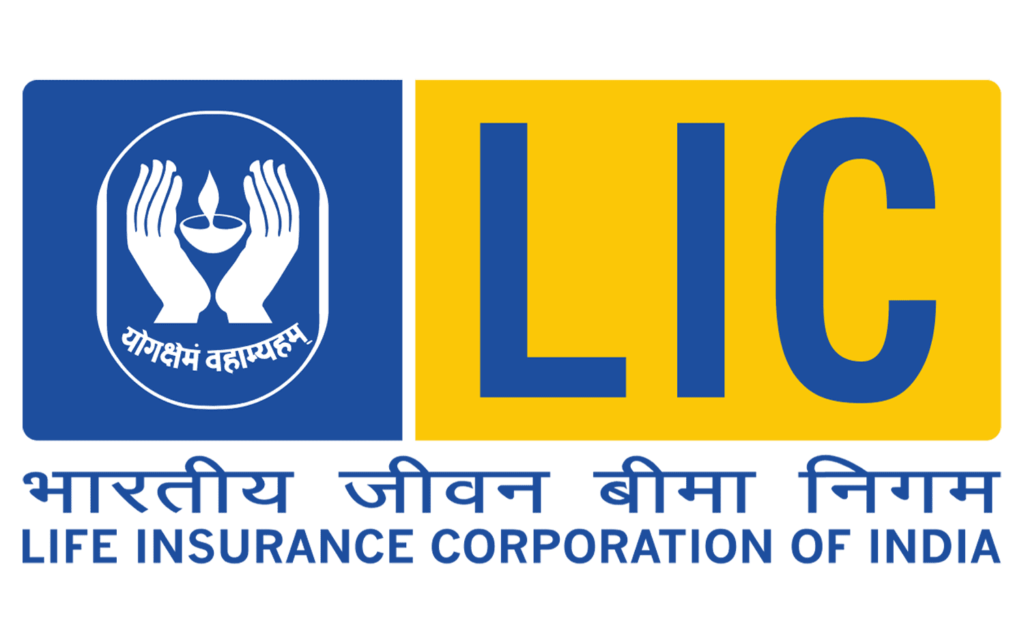
Breaking Down the IPO Process: From Filing to Trading
An IPO (Initial Public Offering) Process is a significant milestone for any private company that wishes to transition into a public company. It is achieved by offering shares to the general public for the first time. This crucial step plays a vital role in determining the growth trajectory of the company, as it unlocks access to capital, boosts visibility, and enhances its ability to draw in new investors.
What is an IPO?
An IPO marks the initial occasion when a private company publicly offers shares of its stock. During an IPO, a company gains funds by selling portions of its stock to the general public. This process consists of multiple stages, such as submitting a prospectus to the Securities and Exchange Board of India (SEBI), establishing an offering price, and vending the shares to the public.
Why do companies go for an IPO Process?
Companies opt for an initial public offering (IPO) to raise capital to acquire funds for their growth and expansion initiatives. The decision to go public enables companies to tap into a larger investor base, securing a larger amount of capital compared to private fundraising rounds. Going public can significantly enhance a company’s brand reputation, credibility, and market visibility, which can attract more customers, partners, and talented individuals.
How does an IPO work?
Before going public, a company is required to create a prospectus. This document contains detailed information about the company’s finances and operations. It is submitted to the SEBI for review and approval of the IPO. Once the prospectus is approved, the company sets the offering price for its shares.
During the IPO, the company offers shares to the public through the primary market, which is where new securities are sold. Typically, the shares are sold through investment banks or brokers who help price the shares and find potential buyers.
Following the IPO, the shares are traded on the secondary market, which includes stock exchanges such as the Bombay Stock Exchange (BSE) and the National Stock Exchange (NSE). This is where investors buy and sell securities.
How does the Valuation of an IPO work?
Initial Public Offering (IPO) valuation is determined by evaluating the justifiable market value of the company’s shares, which will be sold to the public. This task is primarily carried out by investment banks or underwriters who conduct a detailed analysis of the company’s financials, growth prospects, industry trends, and market demand.
The underwriter initiates a book-building process, which involves assessing investor interest in the IPO and gathering orders for shares. After analyzing the demand, the underwriter and the company agree on a price range for the shares. Finally, the underwriter uses the book-building process to determine the ultimate offer price, which is generally set at the upper end of the price range to ensure adequate demand for the shares.
Several factors influence IPO valuation, including the company’s revenue, profitability, growth potential, competition, and overall market conditions. Investors thoroughly scrutinize the company’s financials and prospects before deciding whether or not to invest in the IPO. It’s crucial for the company to present its business and financial information accurately in the prospectus to ensure that investors have a clear understanding of the risks and rewards of investing in the IPO.

How does the valuation of the stocks work?

Stock valuation is the process of determining the intrinsic value of a company’s shares. There are different methods utilized to value stocks, including fundamental analysis, technical analysis, and comparative analysis.
- Fundamental analysis involves analyzing a company’s financial statements such as its balance sheet, income statement, and cash flow statement. By considering factors like revenue, earnings, and cash flow, analysts can predict the company’s potential earnings and project its future cash flows. This information is used to estimate the company’s intrinsic value, which is then compared to the stock’s market price.
- Technical analysis, on the other hand, involves analyzing past market data like stock price and trading volume to identify trends and patterns. Technical analysts use charts and other tools to look for signals that suggest whether a stock is likely to rise or fall in the future.
- The comparative analysis involves comparing a company’s financial metrics to those of other companies in the same industry. This helps determine whether a stock is overvalued or undervalued relative to its peers.
The value of a stock is determined by the supply and demand in the market. If more investors want to buy a stock than sell it, the price will go up. If more investors want to sell a stock than buy it, the price will go down. This is why stock prices can fluctuate widely based on news, economic data, and other factors that impact investor sentiment.
SEBI’s New Regulations to Enhance IPO Processing:

SEBI, the Securities and Exchange Board of India, has recently implemented six new regulations aimed at enhancing the IPO process and protecting the interests of investors. These regulations include several notable changes, such as reducing the minimum application value for retail investors to ₹5,000 and making IPOs more accessible to a wider audience. Additionally, SEBI has increased the lock-in period for pre-IPO shares held by anchor investors to 30 days, which promotes stability in share prices following an IPO.
To increase transparency for potential investors, companies are now required to disclose any significant changes in risk factors within their DRHP. Moreover, the timeline for listing shares post-IPO has been shortened to T+3 days, making the process more streamlined for all parties involved. SEBI has also mandated standardized financial disclosures for the preceding three financial years in the offer document, which provides a consistent basis for evaluating a company’s financial performance.
Finally, companies must now include investor grievances and the status of their resolution in the DRHP, which helps to increase transparency and safeguard investor interests. Overall, these changes are significant and aim to improve the IPO process for all involved parties.
SEBI has been quite active lately in reviewing proposed IPO documents submitted by companies. Oyo and Lava International’s draft papers require certain updates and have been returned for re-submission. Similarly, BF Investment’s proposal for delisting was rejected, and SEBI has asked the company to refile its IPO papers with updates. There is also news that Digits, an insurance company, has filed for an IPO, but it is yet to be determined whether SEBI has requested any revisions. This recent development underscores the significance of meticulous preparation and adherence to SEBI regulations during the IPO process.
Stocks vs IPOs: What should you invest in?

Determining whether to invest in stocks or IPOs (Initial Public Offerings) is dependent on various factors, such as your investment objectives, risk appetite, and investment horizon.
Stocks are portions of established companies that are publicly traded, and their prices are determined by market forces of supply and demand. Investing in stocks provides long-term growth potential, along with a regular income in the form of dividends. However, stocks can be volatile, and their prices may fluctuate frequently, sometimes even on a daily basis.
On the other hand, IPOs are the first time a company offers its shares to the public, and investors can purchase them directly from the company at the offering price. IPOs provide an opportunity to invest in a potentially high-growth company from the very beginning, which could lead to significant returns if the company performs well. However, IPOs may be riskier than investing in established companies since the available financial and operational information about the company is limited.
Generally, investing in stocks is a more appropriate option for long-term investors with a lower risk appetite who seek consistent returns over time. IPOs, conversely, are more appropriate for investors who are willing to take on higher risks and potentially higher returns in the short to medium term.
The decision to invest in stocks or IPOs is specific to your individual investment objectives and risk appetite. It is essential to conduct your own research and seek advice from a financial advisor before making any investment decisions.
Over time, numerous companies based in India have opted to go public and have successfully raised significant amounts of capital through initial public offerings (IPOs). Out of these, the following five Indian IPOs are among the most renowned:
1. Life Insurance Corporation of India (LIC) is a government-owned insurance company that stands as the largest of its kind in India. LIC has plans to conduct an IPO, which is expected to become one of the most significant IPOs ever to occur in India’s history, as it was announced in March 2021.

2. Paytm is a digital payments and financial services provider that was established back in 2010. Paytm conducted an IPO in November 2021, where it successfully raised $2.2 billion, marking it as one of the most substantial IPOs to happen in India’s history.

3. Zomato is an online food delivery and restaurant discovery platform that came to life in 2008. In July 2021, Zomato raised $1.3 billion through an IPO, resulting in one of the most triumphant IPOs in India’s history.

4. State Bank of India (SBI) is the largest bank in India, and the majority of it is owned by the government. SBI was the first Indian company to conduct an IPO and go public in 1993.

5. Reliance Power, a subsidiary of Reliance Industries, one of India’s biggest conglomerates, conducted an IPO in 2008, raising a sum of $2.9 billion. This made it one of the most extensive IPOs in India’s history up until that time

Initial Public Offerings (IPOs) have gained widespread popularity as a means for companies to raise capital and expand their operations. In India, many companies have successfully gone public and generated significant funds through IPOs. For individuals seeking exposure to fast-growing companies, IPOs can offer an attractive investment opportunity. However, investing in IPOs carries inherent risks, with the share price often showing volatility during the initial trading phase. Therefore, conducting comprehensive research on the company and its operations prior to investing is crucial. It is also advisable to seek guidance from a financial advisor who can provide valuable insights into the risks and benefits of IPO investing.

